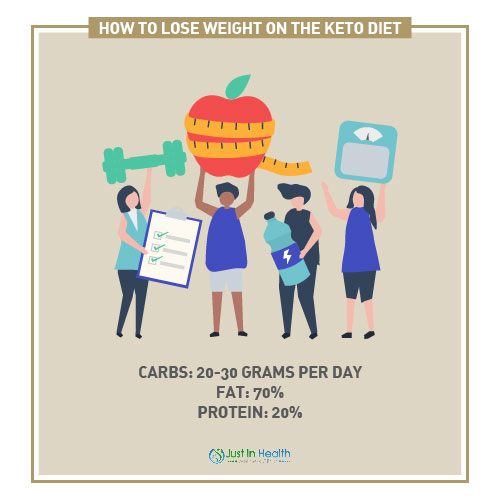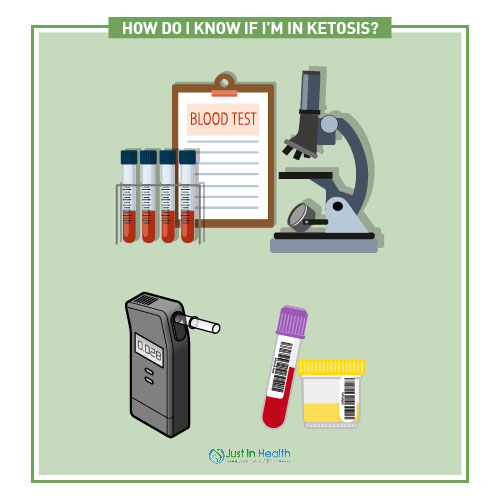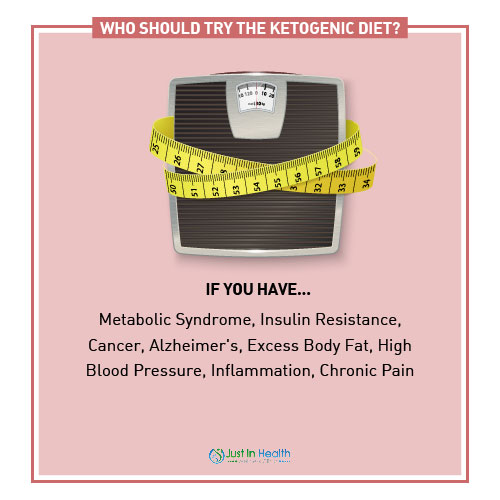

By Dr. Justin Marchegiani
What if I told you that eating bacon, avocados, and butter could not only improve your health–it could also help you lose weight? By now you have probably heard of the keto diet, but what exactly is the keto diet and how does it improve your health? Let’s dive in!
The Keto Diet is a high fat and low carb way of eating which prompts your body to enter a state called ketosis. Ketosis is when your body burns primarily fat, rather than glucose, for energy.
The standard American diet is very heavy in carbohydrate-heavy foods. When you’re eating a high-carb diet your body mainly runs off of glucose (sugar) as fuel. However, if you cut the carbs and start eating more saturated fat, there’s no more glucose so your body starts burning fat (including stored body fat) for fuel instead! The weight loss effects of entering the metabolic state of ketosis is a huge reason why the keto diet is so popular for weight loss, but it also a great way of eating to lower inflammation, improve your insulin response and prevent/heal diabetes, and is protective against cancer, Alzheimers and other neurodegenerative diseases.
Glucose actually burns dirty, like a diesel fuel. It’s stinky. But ketones burn really clean–you don’t get a lot of reactive oxygen species or free radicals afterwards. Imagine fat is like a big branch and that you throw into the wood chipper, and then out of that wood chipper comes these things called ketones. These ketones can be used by different tissue in the body. In addition, burning ketones avoids the effects of glycation, which is basically all the proteins or tissue in your body gets sugar-coated and that creates basically a magnet for free radicals. Ketones are stable, whereas burning glucose is a constant up and down reaction.

One of the biggest ways we can induce ketosis and burn body fat for fuel is by cutting carbs. Typically 20-30 grams per day is a great starting point for most people.
I recommend following a Paleo template for your keto diet, utilizing non-strachy vegetables for the bulk of your carbs. Around 20-30g per day is the sweet spot for most people. This is attainable if you keep your carbs to your paleo veggies: a cup of broccoli, a cup of spinach, a cup of kale, some asparagus, a salad… Once you factor out the fiber, you’ll probably be around 20-30 net carbs. As you continue with the keto diet you can play around with your carb range, some people feel better on 10-20 grams, others do well hitting around 40-50 grams of carbs per day.

Some people like to measure their ketones, either measuring their breath, urine, or blood. Not all of these methods are always effective–for example, if you’re burning ketones, they may not end up in the urine, giving you a false negative.
I use a ketone meter, either the Abbott Precision Xtra or Precision Xtra, to measure blood sugar in addition to ketones. The Ketonix breath meter is another good way to measure.
One of the biggest keto mistakes is eating too much protein, as high as 30-40% protein. It’s hard to eat that much protein unless you do two things wrong. Number one, you eat lots of lean meat, and number two, you use excessive protein powders.
However, you can get away with going higher on protein if you’re doing a lot of resistance training. However, most of us are not elite athletes, so ideally your macros will be about 60-70% fat as a pretty good starting point.
Let’s clear something up. When people hear about ketones, they’ve likely been in the grocery store and they’ve seen the “raspberry ketones” as a weight loss supplement. This became very popular over the last few years. First off, raspberry ketones aren’t even derived from raspberries. Most of the time these products are filled with synthetic chemicals, artificial colors and artificial sweeteners. I do not recommend them, the ingredients will most likely do more harm than good.
For a good ketone product, try Keto OS or Keto Sport which use beta-hydroxybutyrate salts, which are the gold standard in keto products.
You can use ketone precursors like medium chain triglycerides C8 and C10. These MCT oils provide both the brain effects and metabolic effects of ketones. In the morning I do butter coffee with a high quality MCT oil. I’ll get my ketones up within an hour or 2 to—to .5, .6 mmol and I feel great.
Some people think the keto diet may be dangerous and destroy muscle. Sure, you can be in ketosis when you’re starving yourself. This doesn’t happen on the keto diet because we’re doing it nutritionally, meaning we’re actually eating foods. They’re real whole foods and we’re getting enough calories so you’re body’s not going to be eating away lean tissue.
Cheating on the keto diet implies you’re eating enough carbs to bring you out of ketosis. Some people like to cycle in an out of ketosis in daily or weekly cycles. If you save all of your carbs for the evening and have some sweet potato or dark chocolate, the carbs can actually help you sleep! Some people can develop hypothyroid symptoms if they stay in ketosis long term. These people, primarily women, may benefit from cyclical ketosis like 5 days on, 3 days off.
Exogenous ketones can be great from a performance and neurological standpoint. They can be phenomenal if you are on the ketogenic diet–we call it therapeutic ketone therapy. However, if you’re still eating high carb and high sugar, don’t waste your time and money on expensive ketone supplements.

I recommend the keto diet for most people, especially those dealing with metabolic syndrome, which is when there’s a level of insulin resistance and you’re body is having a difficult time tapping into fat for fuel.
The Keto Diet is also great for cancer patients, Alzheimer’s patients, anyone with metabolic syndrome, women with a waist size 35 or larger, men with a waist size 40 or larger, blood pressure over 140, and anyone with inflammation or chronic pain.